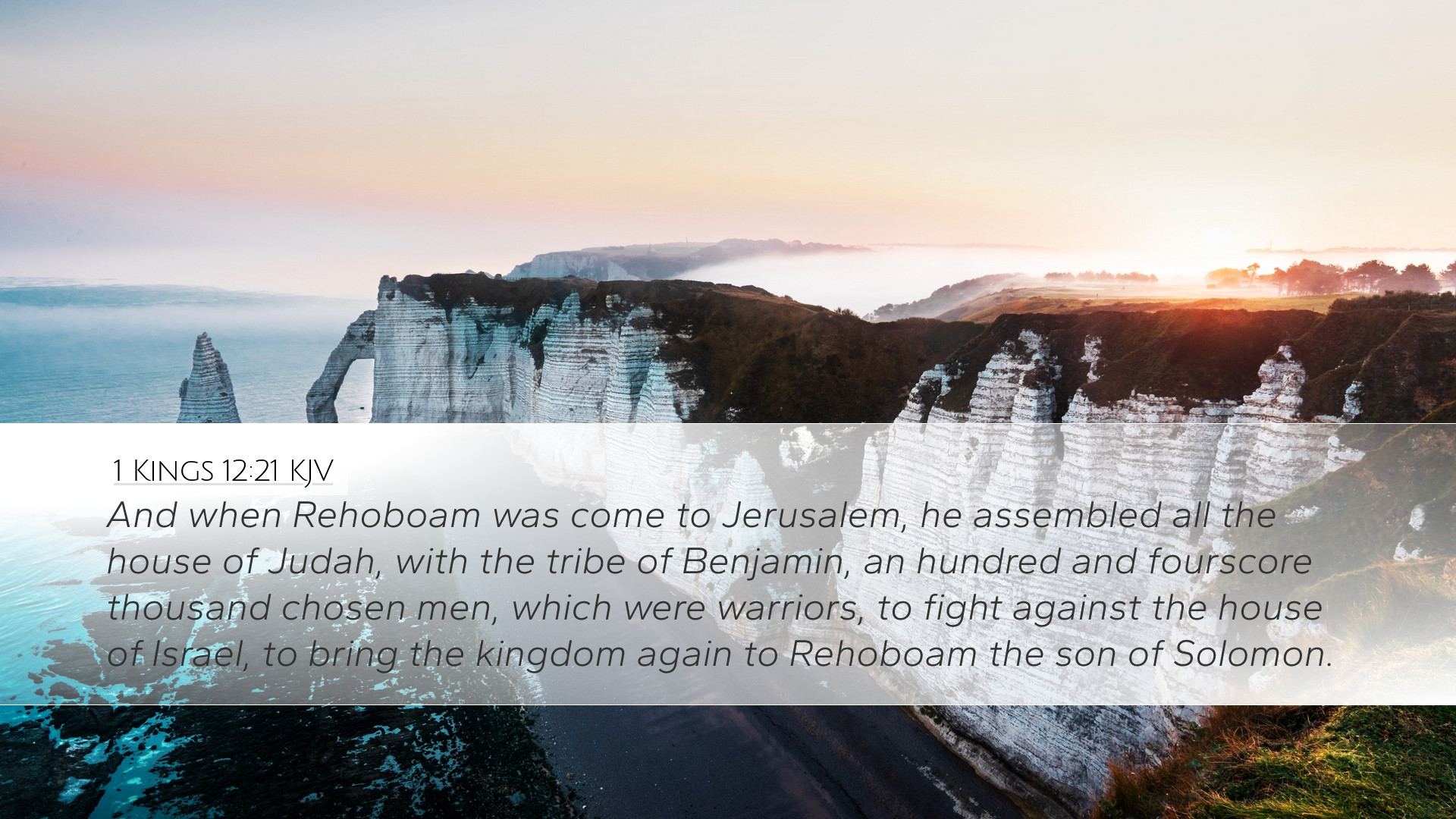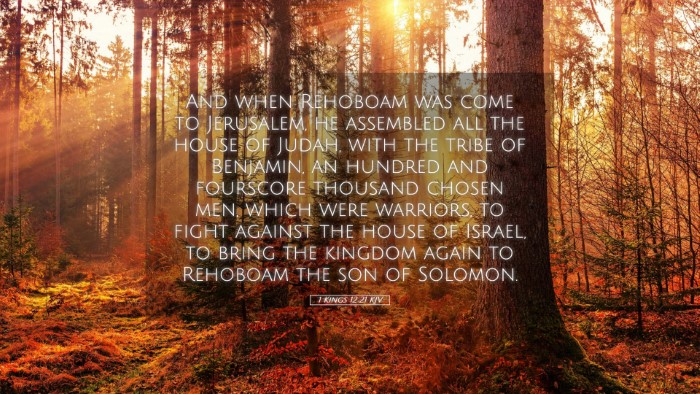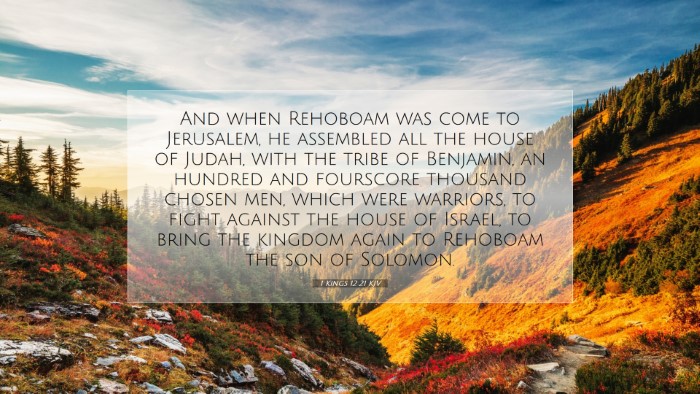Commentary on 1 Kings 12:21
Bible Verse: 1 Kings 12:21 - "And when Rehoboam was come to Jerusalem, he assembled all the house of Judah, with the tribe of Benjamin, and an hundred and fourscore thousand chosen men, which were warriors, to fight against the house of Israel, to bring the kingdom again to Rehoboam."
Introduction
This passage marks a pivotal moment in the history of Israel, as it captures the political tensions following the reign of Solomon. Rehoboam's decision to assemble a military force signifies the severity of the rift between the northern tribes of Israel and the southern kingdom of Judah. As we explore the implications of this verse, insights from esteemed commentators such as Matthew Henry, Albert Barnes, and Adam Clarke will provide depth and understanding relevant for pastors, students, and theologians alike.
Contextual Overview
Rehoboam, the son of Solomon, ascended to the throne amidst a backdrop of discontent among the tribes of Israel. Solomon's heavy taxation and forced labor had strayed the loyalty of many Israelites. Upon asking the counsel of both young and older advisors, Rehoboam ultimately ignored the wise counsel of the older men, leading to a division that would last for generations. The action of assembling an army demonstrates a reactionary approach rather than a reconciliatory one.
Commentary Insights
Matthew Henry's Commentary
Matthew Henry emphasizes the folly of Rehoboam's approach to conflict resolution. He observes that assembling an army was a clear indication of trusting in military strength rather than seeking divine guidance or peace through dialogue.
- Trust in God: Henry argues that Rehoboam should have sought God’s counsel instead of resorting to violence, which showcases a lack of faith.
- Foolishness of Pride: His pride blinded him to the reality of his people's grievances, leading him to adopt a hardened approach.
Albert Barnes' Notes
Albert Barnes provides a detailed analysis on the significance of Rehoboam's choice of action, viewing it as a miscalculation of governance.
- Political Misjudgment: Barnes points out that Rehoboam underestimated the desire for autonomy that stirred among the northern tribes, which was not merely a simple rebellion, but a justified reaction to oppressive rule.
- Consequences of Command: The illustration of assembling such a large army underscores the responsibilities and implications of leadership.
- Judah and Benjamin: He notes that the unity of Judah and Benjamin reflects the remnants of loyalty, yet ultimately depicts the impending collapse of unity within Israel.
Adam Clarke's Commentary
Adam Clarke contributes an understanding of the socio-political dynamics at play during this time. He underscores the significance of the numbers presented in the text.
- Military Might: Clarke remarks on how Rehoboam's decision to gather "an hundred and fourscore thousand chosen men" highlights the reliance on military advisors over wise statesmanship.
- Covenantal Implications: He highlights the failure to recognize the covenant promises made to Israel, suggesting that Rehoboam’s actions are indicative of a leadership disconnected from spiritual obligations.
- Divine Sovereignty: Clarke notes that despite the military preparations, God's sovereignty over nations was not to be overlooked, as true authority rests in divine will, not in the strength of armies.
Theological Implications
The assembly of the armed forces under Rehoboam opens discussions surrounding governance, leadership, and spiritual oversight. The following points are pivotal:
- Leadership and Counsel: The importance of seeking wise counsel, particularly from those who are spiritually mature and knowledgeable, is emphasized throughout biblical history.
- Humanity’s Response to Crisis: Rehoboam's instinct to employ force reflects a common human tendency to respond to crises with aggression rather than reconciliation.
- Division and Unity: This event marks the significant division within Israel; it serves as a cautionary tale about the fragility of unity and the importance of understanding the needs and concerns of others.
Conclusion
The passage in 1 Kings 12:21 is rich with lessons that resonate through the ages. Rehoboam's decision to muster a military force rather than seek unity and divine guidance illustrates the pitfalls of unwise leadership and the consequences of ignoring the voice of the people. As modern leaders, pastors, and scholars, there is a profound call to seek wisdom beyond our understanding and to foster unity rather than division. The insights provided by ancient commentators remain relevant, urging the church and society to reflect deeply on the principles of leadership, justice, and reconciliation.


